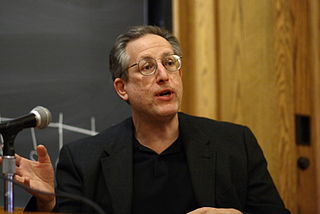A Quote by Ronald Knox
Comparative religion is an admirable recipe for making people comparatively religious.
Quote Topics
Related Quotes
I think there in a great deal to be said for religious education in the sense of teaching about religion and biblical literacy. Both those things, by the way, I suspect will prepare a child to give up religion. If you are taught comparative religion, you are more likely to realise that there are other religions than the one you have been brought up in. And if you are if you are taught to read the bible, I can think of almost nothing more calculated to turn you off religion.
Bill Maher is right to condemn religious practices that violate fundamental human rights. Religious communities must do more to counter extremist interpretations of their faith. But failing to recognize that religion is embedded in culture — and making a blanket judgment about the world’s second largest religion — is simply bigotry.
The Constitution forbids states from banning all religion from public spaces and from making churches the ghettos of religion where all manifestations of faith are kept separate from public life. Religious people have an equal right to participate in the public square and to have their contributions to Oklahoma history and society recognized.
Today courts wrongly interpret separation of church and state to mean that religion has no place in the public arena, or that morality derived from religion should not be permitted to shape our laws. Somehow freedom for religious expression has become freedom from religious expression. Secularists want to empty the public square of religion and religious-based morality so they can monopolize the shared space of society with their own views. In the process they have made religious believers into second-class citizens.
We are driven to confess that we actually care more for religion than we do for religious theories and ideas: and in merely making that distinction between religion and its doctrine-elements, have we not already relegated the latter to an external and subordinate position? Have we not asserted that "religion itself" has some other essence or constitution than mere idea or thought?
Every religion I know of has changed its views with respect to concrete controversies over long periods of time. People's views about the morality of homosexuality are likely to undergo some change, even though they're making judgments based on their religious beliefs. Because in fact, religion is an extremely durable, and yet flexible, way of trying to apprehend what's good and what's bad in the world. In fact, its durability comes from its flexibility. Now, speaking from inside a religion, it's hard to talk that way.
There has been a religious revival because - let me put it like this, the people that weren't traditionally religious, conventionally religious, had a religion of their own in my youth. These were liberals who believed in the idea of progress or they were Marxists. Both of these secular religions have broken down.





































